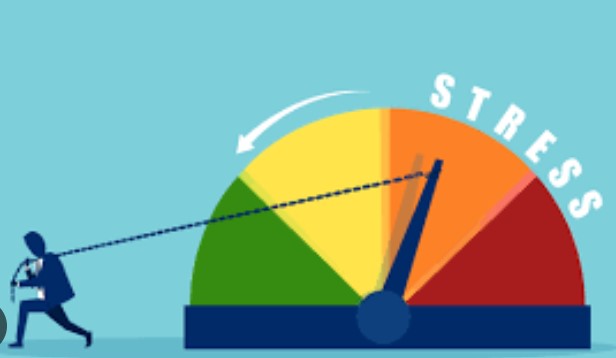
Stress Management Beyond Diet: Holistic Approaches for Well-Being IN 2024
stress management: Building Resilience Through Lifestyle Choices
While nutrition plays a crucial role in stress management, adopting a holistic approach can enhance overall well-being. Here are additional strategies to complement your dietary efforts:
1. Regular Exercise: Energize Your Body and Mind
Engaging in regular physical activity is a potent stress-buster. Exercise releases endorphins, the body’s natural mood lifters, promoting a sense of happiness and reducing cortisol levels. Whether it’s a brisk walk, yoga, or a gym session, find an activity that brings you joy.
2. Adequate Sleep: Recharge for Resilience
Quality sleep is essential for stress resilience. Aim for 7-9 hours of uninterrupted sleep each night. Establish a relaxing bedtime routine, limit screen time before sleep, and create a comfortable sleep environment to support rejuvenating rest.
3. Mindfulness and Meditation: Calm the Racing Mind
Mindfulness practices, such as meditation and deep-breathing exercises, are powerful tools for stress reduction. These techniques help bring attention to the present moment, alleviating anxiety and promoting a sense of calm. Consider integrating mindfulness into your daily routine.
4. Social Connections: Share the Load
Cultivate meaningful connections with friends, family, or support groups. Sharing your thoughts and feelings with others can provide emotional support, fostering a sense of belonging and reducing the impact of stress.
5. Time Management: Prioritize and Delegate
Effectively managing your time can alleviate stress related to overwhelming tasks. Prioritize your responsibilities, break them into manageable steps, and consider delegating when possible. Creating a well-organized schedule can contribute to a more balanced life.
6. Hydration: Water for Wellness
Don’t underestimate the power of staying hydrated. Dehydration can contribute to increased cortisol levels and heightened responses. Ensure you’re drinking an adequate amount of water throughout the day to support overall health.
7. Limit Caffeine and Sugar: Balance Your Intake
While certain foods can aid management, excessive caffeine and sugar intake may have the opposite effect. Monitor your consumption of stimulants and opt for balanced nutrition to maintain stable energy levels.
8. Art and Creativity: Express Yourself
Engaging in creative activities, whether it’s painting, writing, or playing a musical instrument, provides a channel for self-expression. These outlets can be therapeutic, allowing you to process emotions and reduce stress.
9. Nature Connection: Harness the Healing Power of Outdoors
Spending time in nature has proven benefits for mental health. Whether it’s a stroll in the park, a hike in the woods, or simply enjoying your backyard, connecting with nature can help reduce cortisol levels and promote a sense of calm.

10. Laugh Often: Embrace the Lighter Side
Laughter truly is good medicine. Whether through comedy, spending time with funny friends, or enjoying humorous content, laughter triggers the release of endorphins, contributing to stress relief.
11. Limit News Consumption: Choose Quality Over Quantity
While staying informed is crucial, constant exposure to negative news can contribute to stress. Set boundaries on news consumption, choose reliable sources, and allocate time for updates to maintain a healthy balance.
12. Practice Gratitude: Foster a Positive Mindset
Cultivate gratitude by acknowledging and appreciating positive aspects of your life. Consider keeping a gratitude journal to reflect on moments of joy and achievement, fostering a positive mindset even during challenging times.
13. Hobbies and Interests: Nourish Your Passions
Dedicate time to activities you love. Whether it’s gardening, reading, or playing a sport, engaging in hobbies provides a fulfilling escape, promoting relaxation and diverting your focus from stressors.
14. Professional Support: Seek Guidance When Needed
If stress becomes overwhelming, seeking professional support is a proactive step. Therapists, counselors, or support groups can offer valuable insights, coping strategies, and a safe space to navigate challenging emotions

By combining mindful nutrition with these holistic strategies, you can create a comprehensive approach to stress management. Remember that each person’s response to stress is unique, so it’s essential to explore various techniques and discover what works best for you. Prioritizing self-care and adopting a holistic lifestyle can contribute to sustained well-being and resilience in the face of life’s challenges.
Building resilience is a personal journey, and there’s no one-size-fits-all approach. By integrating these lifestyle choices with mindful nutrition, you can create a holistic strategy to manage stress effectively. Experiment with different practices, be patient with yourself, and prioritize self-care to enhance your overall well-being and resilience in the face of life’s uncertainties.
For the latest updates-click here.


